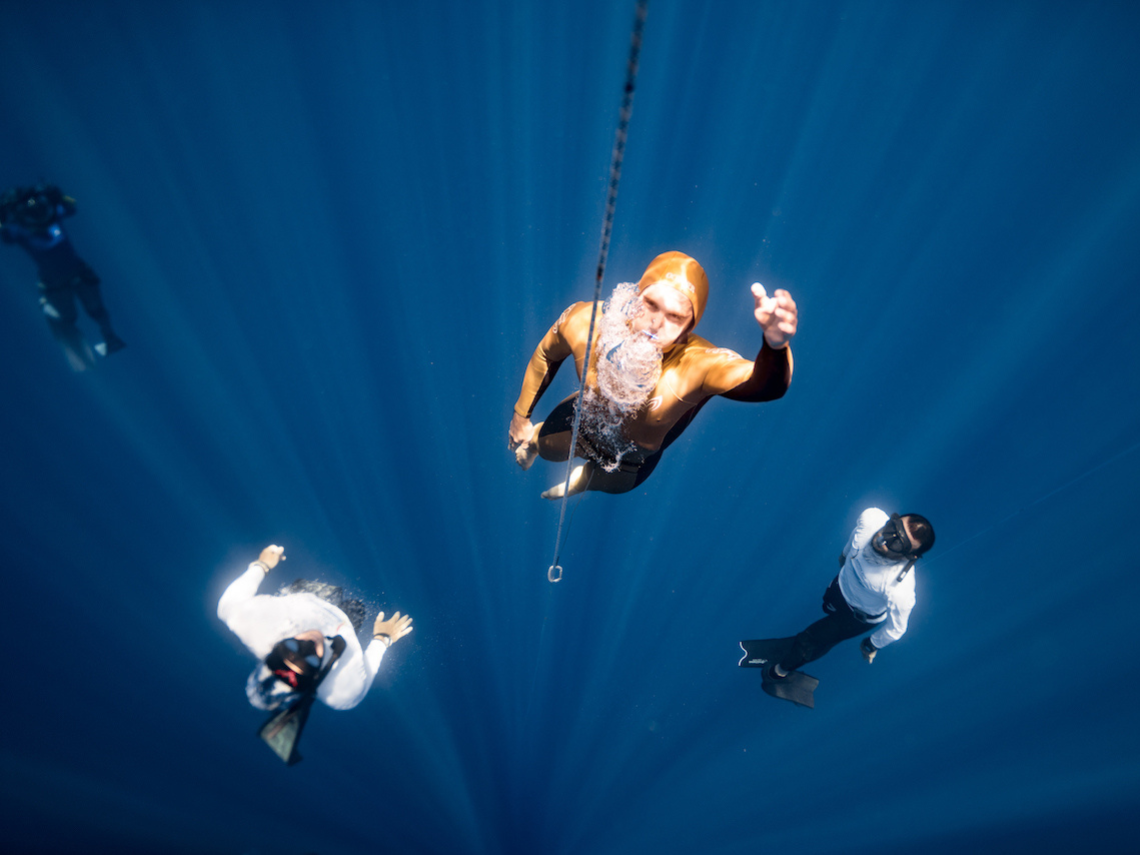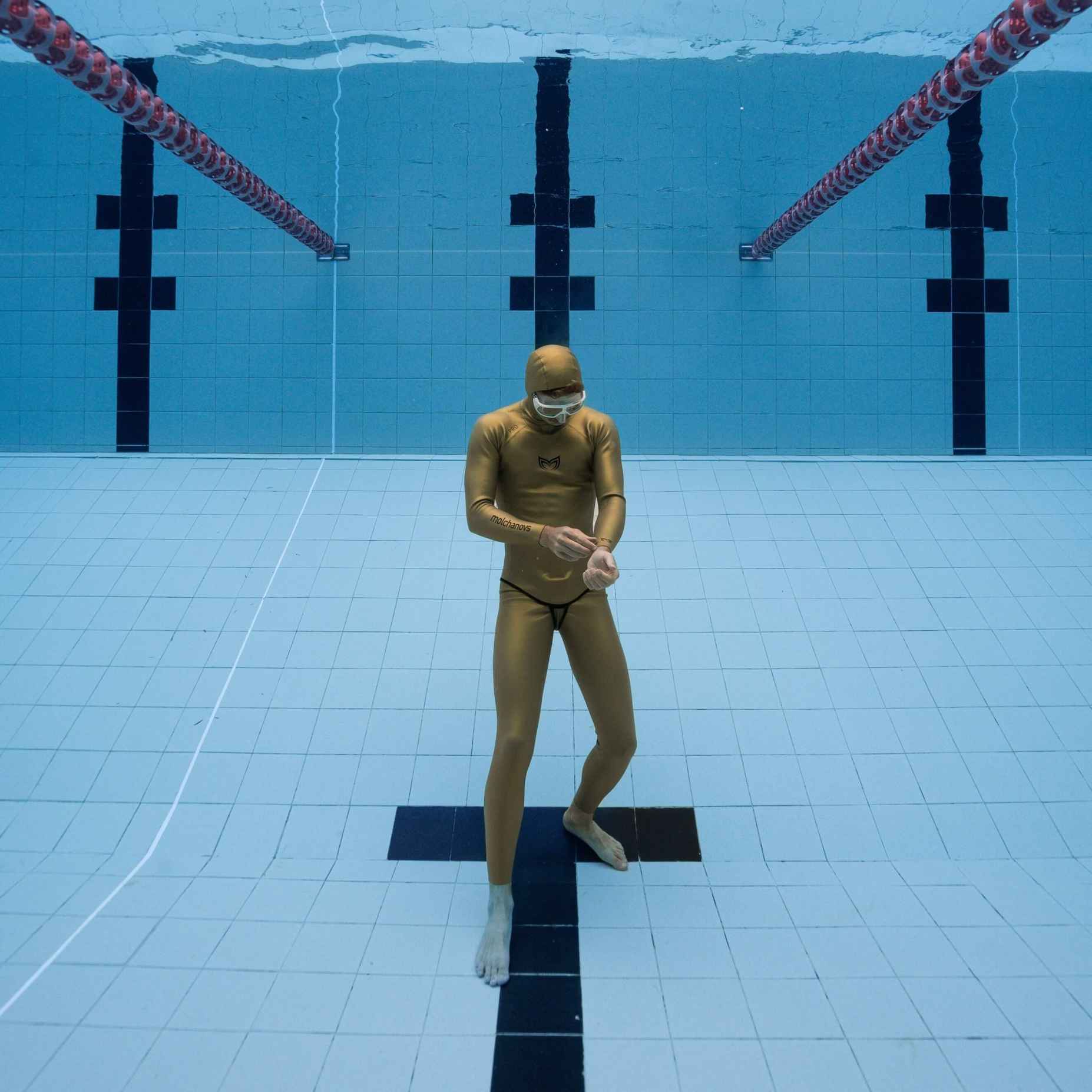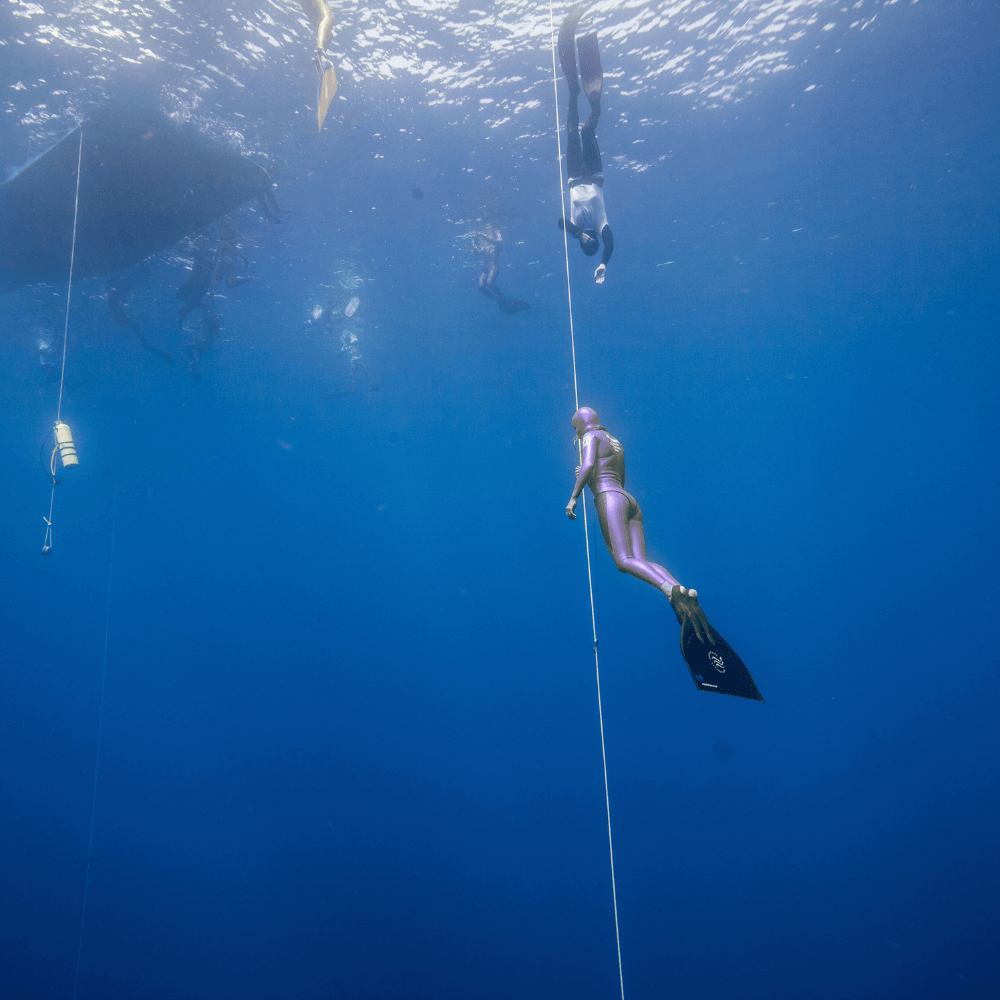Discover How Lung Volume Impacts Your Freediving

By Kristina Zvaritch
When you look up freediving articles and videos on the internet, you probably find a lot of lung measurement terms (such as residual volume, FRC, etc.). It can be really confusing to understand these terms, but it’s essential to spend some time understanding your lungs and their function in freediving. Picture that your lungs are like gas tanks, and air (well, the oxygen in the air) is the fuel. The more understanding you have of your lungs and lung volume, the more you can use that knowledge to benefit your freediving.
In this article, we go over the types of lung measurements and their definitions, the importance of breathing awareness, mobility, and flexibility, and how these factors affect your freediving. We also will talk about a new Base Training + program, Foundational Breathwork with Alexey Molchanov, and its benefits for freedivers.
Types of lung measurements

Tidal Volume (TV) - The amount of air that moves in or out of the lungs with each respiratory cycle. This is relaxed breathing, such as how you breathe while sitting and reading a book.
Inspiratory Reserve Volume (IRV) - The amount of air that can be forcibly inhaled on top of the tidal volume. This is used when taking your one full breath in freediving.
Expiratory Reserve Volume (ERV) - The volume of air that can be forcibly exhaled after a passive exhalation.
Residual Volume (RV) - The volume of air remaining in the lungs after maximal exhalation. Usually about 25% of the total lung capacity (TLC).
Total Lung Capacity (TLC) - The maximum volume of air the lungs can accommodate, or the volume of air in the lungs after a maximum inhalation.
Vital Capacity (VC) - The total amount of air exhaled after a maximal inhalation, which is the sum of your IRV, TV, and ERV. In other words, all the air that you can inhale and exhale. The average VC in an adult can range from 3 - 5l of people; it depends on a person’s sex, level of fitness, age, and height.
Functional Residual Capacity (FRC) - The amount of air remaining in the lungs after a passive exhalation (done by relaxing all breathing muscles with your airways open).
Factors that affect your freediving
Having a large total lung capacity is every freediver’s dream. With a bigger total lung capacity, you have more air to equalize and a greater amount of oxygen to increase your tolerance to hypoxia. While there are ways to increase your TLC (discussed at the end of the article), you should know that TLC is not the only thing you should focus on to benefit your freediving!
Awareness
While breathing is something we do naturally and unconsciously, having awareness of your lungs and breathing muscles, along with breathing consciously, can have a tremendous impact on your breath-holds. The more of your lungs you use efficiently, the longer you can hold your breath and dive. You do this by being aware of your belly (more specifically, your diaphragm), along with your chest (more specifically, your intercostal muscles) to know how to breathe in a relaxed manner and take a full breath. Breathwork, or the concentrated practice of directing your inhale and exhale patterns, can help you build this awareness.
Flexibility
While overall flexibility is important for any physical activity, you especially want to focus on diaphragm flexibility. Your diaphragm, which sits under your lungs and helps you breathe, is especially important in taking a full breath and protecting you from injuries as you dive to deeper depths. Stretching and exercises with empty lungs can help improve your diaphragm flexibility and decrease your residual volume. While the average, untrained human has an RV of 25%, trained freedivers can get their RV down to 20% or below, enabling them to equalize at greater depths and dive deeper!
Mobility
You need some serious chest mobility to be able to fill your lungs with as much oxygen as possible. With that being said, the more your ribcage can expand, the bigger breaths you can take, and the more air (and oxygen!) you can fill your lungs with. Upper body mobility, including the shoulders, spine, and torso, play an important part in how big of a breath you can take. Performing exercises while breathing and on breath-holds can improve your mobility, but remember - consistency is key.
How to improve your lungs for freediving
General physical and cardiorespiratory fitness are important for keeping your lungs in top shape for freediving. Along with that, however, breathwork and stretching exercises can help increase your vital capacity, decrease your residual volume, and increase your total lung capacity. Alexey Molchanov, world champion freediver and co-founder of Molchanovs International, has practiced breathwork since the beginning of his freediving career. He recently put those exercises together into a program called Foundational Breathwork with Alexey Molchanov, which is aimed at sharing exercises that helped him progress on his own record-breaking dives. Some of his exercises have even shown to increase total lung capacity by 10%!
Benefits of Foundational Breathwork include increased lung volume, improved upper body mobility, improved awareness of breathing muscles and the breathing cycle, and the ability to easily detect tension and relax. Over a span of 12 weeks, you learn how to breathe slowly and perform breath-holds without any extra movement, specific exercises on full inhale and exhale breath-holds, how to improve mobility of the shoulders, spine, and torso, and how to increase the flexibility of breathing muscles in the ribcage and diaphragm. In video format, you will follow along in real-time with the exercises in the videos, which are fully accessible from your smartphone, computer, or television. And the best part? No equipment or buddy is required!
Alexey Molchanov’s Foundational Breathwork is now available on the Molchanovs Dashboard. Movement Members can purchase the program on Dashboard for a discounted price of 60 USD. Non-Movement members can purchase the program here for regular price of $75. To join the Molchanovs Movement and receive 20% discount on ALL Base Training + programs, sign up for a Base Training Induction Online (BTIO) today.




Leave a comment